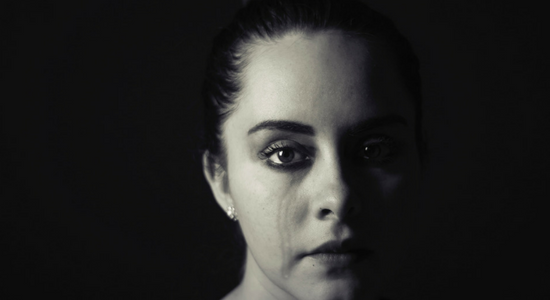Have you ever noticed that when you’re feeling stressed or upset, having a good cry tends to leave you feeling better? It is almost like the act of shedding tears is a physical release for negative emotions. When it comes to these emotional tears, U.S. women cry 3.5 times a month on average, while men only tend to cry 1.9 times.
Emotional crying occurs in response to strong emotions such as stress, sadness, happiness, excitement, physical pain, and more. These emotions cause you to tear up through an intricate connection between your brain and your autonomic nervous system. Specifically, the phenomenon of crying happens because the lacrimal gland, which produces tears, is located between your eyeball and eyelid.
Blinking causes the fluid in your eye to disperse evenly, which then drains through your lacrimal punctum and nose. This is why crying also makes your nose run. However, if you have a lot of tears, they will overflow from your drainage system and flow down your cheeks.
There are several purposes for shedding tears, including reflex tears, which are a form of protection when irritants like dust get into your eyes. Basal tears are also used for protection as they help lubricate your eyes. Crying for emotional reasons also has an important purpose, with research building that it may even offer several physical and mental advantages.
Crying is a form of self-soothing behavior, which means it is something that can help calm you down when you feel upset. It can happen in response to many different emotions, such as watching a movie or seeing the beauty in nature. It also happens when a loved one passes away or a child is born. Crying mainly occurs in situations characterized by separation, helplessness, loss, and feeling overwhelmed by a strong emotion, whether it is negative or positive.
Crying helps provide stress reduction and mood enhancement. It’s been suggested that crying even promotes empathy in adults, increasing social bonding and reducing aggression. It signals to yourself and others that there is an important problem that we are unable to cope with.
Ultimately, it has been concluded that crying increases the activity of the parasympathetic nervous system, which in turn causes you to relax. This serves as a benefit to the crier, emotionally speaking, but can also help solicit outside support.
While crying may initially make you feel worse, it ultimately increases your mood and relieves physical pain. Emotional crying triggers the release of oxytocin, which is known as the “love” hormone. In addition to possibly dulling pain, this can help you achieve emotional numbness that can help buffer extreme stress and possibly even pain.
Shedding emotional tears can also help you relieve stress because tears contain a high concentration of the ACTH hormone, which is a chemical that is linked to stress. Some scholars believe that you cry when you’re sad because it helps your body release excess stress chemicals, which helps you feel more relaxed.
Crying can have social implications. Studies show that people tend to see others who are crying as being warm, yet less competent than their non-crying counterparts. In a study of 475 participants who had reported to never cry, they also reported to have less connection with other people, less empathy and tended to experience less social support than those who do cry. However, this did not change their overall feelings of wellbeing.
Age can also have an impact on how you are viewed when you cry. When study participants looked at pictures of people of various ages crying, the images of adults crying made people feel the greatest amount of sadness and sympathy, followed by pictures of children crying then infants.
There is still a lot to learn about why people cry, and why certain people tend to cry more often than others. We all have our unique emotional threshold, which is when our feelings overwhelm us to the point of causing us to cry. It is important to try to let go of untrue conceptions regarding crying. It is healthy to cry because it helps to emotionally clear unwanted feelings. Crying is also vital when trying to resolve grief, when tears come over us after experiencing a loss or another emotional circumstance.


